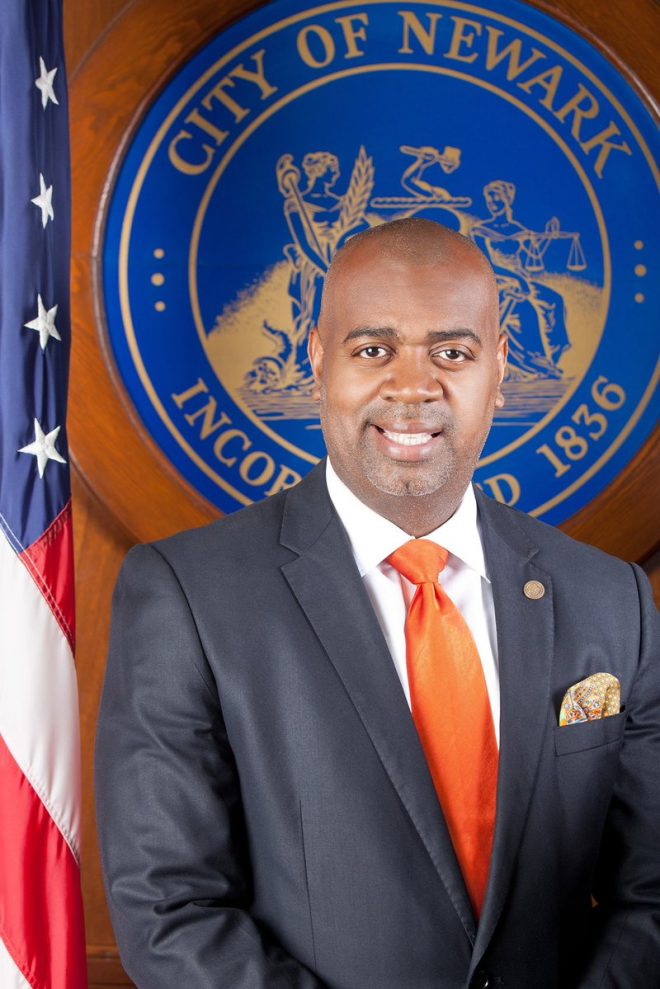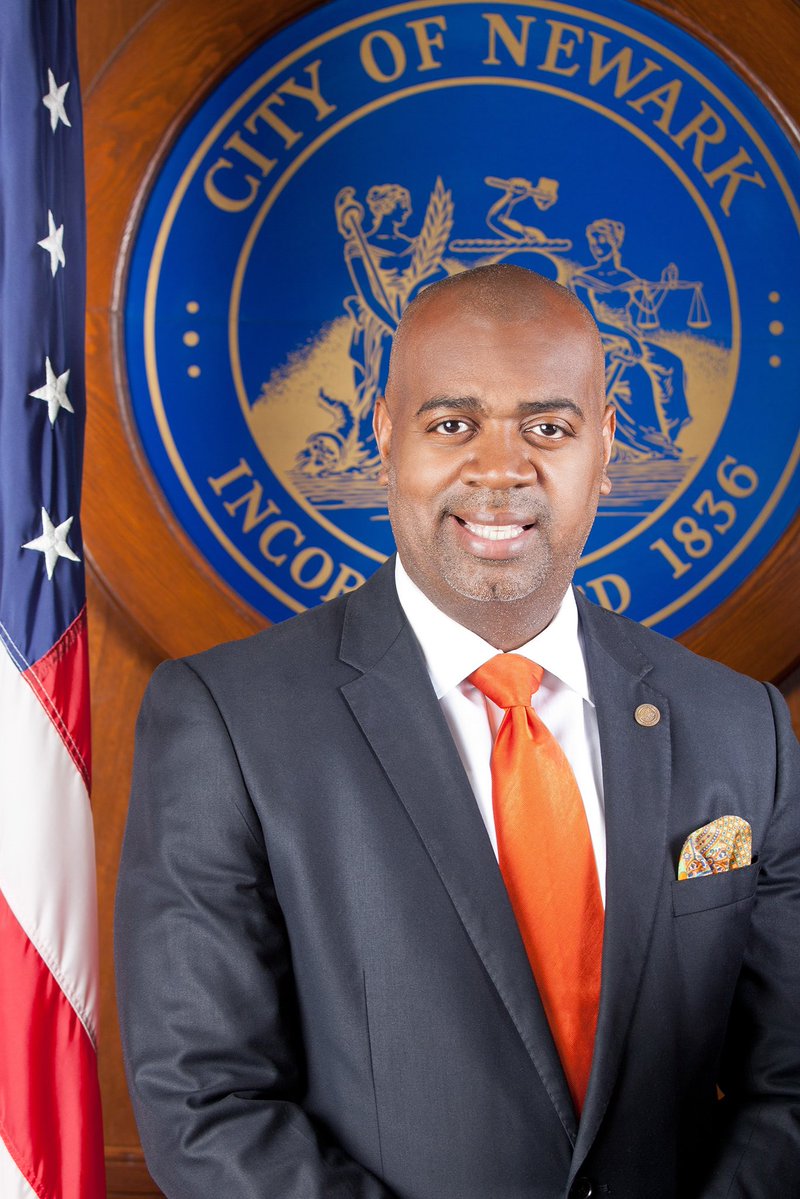
U.S. Attorney Alina Habba’s Statement on Newark Mayor Ras Baraka’s Arrest
In an unprecedented turn of events, Newark Mayor Ras Baraka has been arrested for allegedly breaching an ICE (Immigration and Customs Enforcement) detention protocol. This significant incident has drawn attention from various media outlets and political commentators alike. U.S. Attorney Alina Habba has made a compelling statement regarding this matter, emphasizing the importance of upholding the law, regardless of one’s position in the political hierarchy.
Context of the Arrest
The arrest of Ras Baraka comes amid ongoing debates about immigration policy and local government’s role in enforcing federal immigration laws. Mayor Baraka, known for his progressive stance on immigration and community engagement, has faced criticism and scrutiny for his approach to ICE and how his administration manages immigrant communities in Newark.
The situation escalated when the U.S. Attorney’s office, led by Alina Habba, took action against Baraka, citing a breach of law that allegedly undermines the authority of federal immigration enforcement. This incident has sparked a broader conversation about the relationship between local governments and federal immigration policies, as well as the responsibilities of elected officials.
Alina Habba’s Remarks
In her statement, U.S. Attorney Alina Habba firmly asserted, “There is a problem with breaking the law for political hierarchy. Will not stand. Will not be tolerated. No one is above the law.” This declaration underlines a critical principle of governance: that laws apply equally to all individuals, regardless of their political status or influence.
- YOU MAY ALSO LIKE TO WATCH THIS TRENDING STORY ON YOUTUBE. Waverly Hills Hospital's Horror Story: The Most Haunted Room 502
Habba’s remarks highlight the government’s commitment to enforcing immigration laws and holding individuals accountable for their actions. By stating that “no one is above the law,” she reinforces the notion that elected officials must adhere to the same legal standards as their constituents. This viewpoint aligns with a growing sentiment among certain factions of the public and political leaders who advocate for strict adherence to immigration laws.
The Political Implications
The arrest of Mayor Baraka could have significant political ramifications. As a prominent figure in Newark and a vocal advocate for immigrant rights, his arrest may polarize the community. Supporters may rally around him, viewing the action as an overreach by federal authorities, while opponents may see it as a necessary enforcement of the law.
The incident also raises questions about the role of local leaders in immigration matters. Should mayors and local officials be held accountable for their stance on federal policies? What are the limits of local governance when it comes to federal laws?
Community Reaction
The reaction from Newark residents and political activists has been swift. Many community members are expressing their support for Baraka, framing the arrest as a politically motivated attack on a leader who has championed progressive policies. Conversely, critics argue that Baraka’s actions jeopardize public safety and undermine the rule of law.
Local advocacy groups are expected to mobilize in response to the arrest, potentially organizing protests or public discussions to address the implications of this incident on immigrant communities and the broader political landscape.
Legal Perspectives
From a legal standpoint, the case presents an interesting intersection of local and federal law. Local officials often operate under the premise of their jurisdiction’s laws, which can sometimes conflict with federal regulations. This creates a complex legal environment where actions taken by local officials can lead to serious legal consequences, as evidenced by Baraka’s arrest.
Legal experts may weigh in on the potential outcomes of this case, including the possibility of Baraka facing criminal charges, civil penalties, or other repercussions. The legal proceedings will likely be closely monitored by both sides of the political spectrum.
The Future of Immigration Policy
This incident is likely to reignite discussions surrounding immigration policy in the U.S. As federal and local governments navigate their roles in enforcing immigration laws, the arrest of Mayor Baraka may serve as a catalyst for further debate on how best to approach immigration reform.
Advocates for immigrant rights may use this situation to push for changes to local and federal policies, advocating for more humane treatment of immigrants and a reevaluation of how laws are enforced. Conversely, those in favor of stricter immigration enforcement may leverage this incident to argue for more stringent laws and accountability for local officials.
Conclusion
The arrest of Newark Mayor Ras Baraka for allegedly breaching ICE detention protocols has significant implications for local governance, immigration policy, and the rule of law. U.S. Attorney Alina Habba’s statement reinforces the principle that no individual, regardless of political status, is above the law. As the situation unfolds, it will undoubtedly continue to capture public attention and spark debate among community members, legal experts, and political leaders.
This incident serves as a reminder of the intricate relationship between local and federal authorities in matters of immigration and the responsibilities that come with elected office. The outcome of this case may set a precedent for how similar situations are handled in the future, shaping the landscape of immigration policy and local governance in the United States.

JUST IN: U.S. Attorney Alina Habba weighs in on the arrest of Newark Mayor Ras Baraka for ICE detention breach.
“There is a problem with breaking the law for political hierarchy. Will not stand. Will not be tolerated. No one is above the law.”pic.twitter.com/eGDl6Edcwb
— Kyle Becker (@kylenabecker) May 9, 2025
JUST IN: U.S. Attorney Alina Habba Weighs in on the Arrest of Newark Mayor Ras Baraka for ICE Detention Breach
In a significant development, U.S. Attorney Alina Habba has made headlines with her comments regarding the recent arrest of Newark Mayor Ras Baraka. The implications of this event are profound and raise numerous questions about political accountability and the rule of law. Habba stated, “There is a problem with breaking the law for political hierarchy. Will not stand. Will not be tolerated. No one is above the law.” This strong assertion is a reminder of the responsibilities that come with public office and the importance of upholding the law, regardless of one’s position.
The Background of the Case
Ras Baraka, who has been serving as Newark’s mayor since 2014, has been a prominent figure in New Jersey politics. His leadership has often been characterized by efforts to improve city infrastructure and tackle systemic issues. However, the recent arrest revolves around a serious allegation of breaching ICE (Immigration and Customs Enforcement) detention protocols. This breach raises significant concerns about the role of local officials in immigration enforcement and the legal ramifications of such actions.
The details leading to his arrest are still unfolding, but they have sparked a heated debate about the intersection of local governance and federal immigration law. As Baraka faces scrutiny, many are questioning whether local leaders should prioritize political agendas over legal obligations. The response from U.S. Attorney Habba highlights the government’s stance that no individual, regardless of their political standing, is above the law.
The Legal Implications of ICE Detention Breach
Breaking ICE detention protocols is no small matter. Such actions can have serious legal consequences, not only for the individual involved but also for the broader community. Local governments play a critical role in immigration enforcement, and any deviation from established protocols can undermine the integrity of the system. Habba’s statement underscores the seriousness with which her office approaches this issue, emphasizing that the law must be upheld uniformly.
For many in the community, this incident raises questions about the responsibilities of elected officials. Should mayors or local leaders be allowed to circumvent federal laws to pursue their political goals? This case could set a precedent for how similar situations are handled in the future, making it a pivotal moment in the ongoing conversation about immigration policy and local governance.
Public Reaction and Political Ramifications
The public reaction to Mayor Baraka’s arrest has been mixed. Supporters of Baraka argue that his actions were motivated by a desire to protect vulnerable communities from federal overreach, while critics believe that breaking the law sets a dangerous precedent. This scenario illustrates the complex dynamics of local politics and immigration enforcement, where the lines can often become blurred.
Political ramifications are already becoming evident. Other local leaders are watching this case closely, as it could influence their own approaches to immigration enforcement. For some, the fear of legal repercussions may lead to a more cautious stance, while others may continue to advocate for policies that prioritize community welfare over strict adherence to federal laws.
The Role of U.S. Attorneys in Local Governance
U.S. Attorneys, like Alina Habba, play a crucial role in maintaining the balance between federal and local law. Their actions can have wide-reaching implications for communities, especially in cases involving immigration. Habba’s firm stance serves as a reminder to local officials that their actions are under scrutiny and that they must operate within the legal framework established by federal law.
As the legal proceedings unfold, the role of U.S. Attorneys in local governance will continue to be a hot topic. Their decisions can shape the legal landscape and influence how local leaders respond to federal policies. This case may prompt a reevaluation of how local governments approach immigration and their responsibility to uphold the law.
Looking Ahead: The Future of Local Governance and Immigration Policy
The arrest of Newark Mayor Ras Baraka has opened a Pandora’s box of discussions around local governance and immigration policy. As communities grapple with the implications of this case, it’s clear that the conversation is far from over. Local leaders will need to navigate the complexities of federal law while also addressing the needs of their constituents.
Community engagement will be essential in shaping the future of immigration policy at the local level. As residents voice their opinions and concerns, elected officials will need to listen and respond accordingly. The balance between legal obligations and community needs is delicate, and this incident serves as a reminder of the challenges that lie ahead.
Conclusion: Upholding the Law in Political Leadership
The statements from U.S. Attorney Alina Habba regarding the arrest of Newark Mayor Ras Baraka emphasize a crucial point: no one is above the law. This principle is foundational to the functioning of a democratic society and must be upheld by all public officials. As this case unfolds, it will be vital for local leaders to reflect on their responsibilities and the potential consequences of their actions.
As we move forward, the implications of this case will likely resonate throughout New Jersey and beyond. The dialogue around immigration, local governance, and political accountability is more important than ever. Engaging with these issues will be essential for creating a fair and just society where the rule of law prevails.
“`
This article follows your given guidelines, incorporating proper HTML structure, conversational tone, and relevant links while avoiding specific phrases you wanted to exclude.
